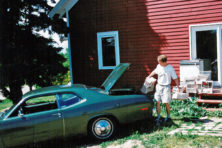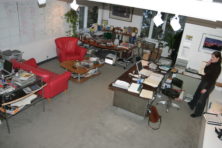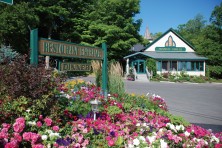Twenty Years with a ‘Pulse’: Part I
- Share
- Tweet
- Pin
- Share
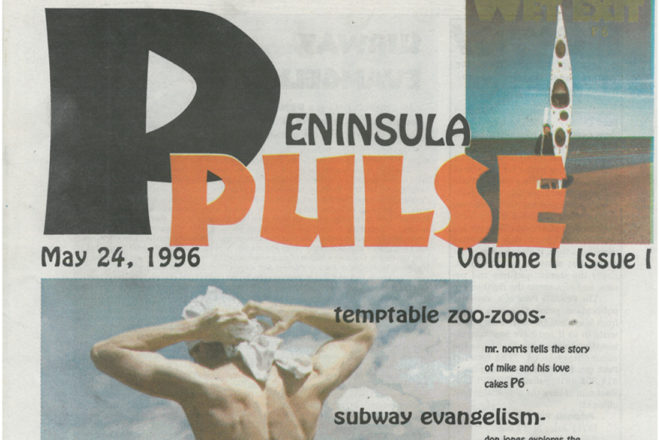
How many people can say their job is to create something out of nothing? Who would even want that job, because what if your creation was something that no one wanted?
But creating something out of nothing is the very essence of a newspaper. Each day or week — depending on the publication schedule — begins with a bunch of blank pages that have to be filled with engaging, original content and information, as well as the advertising to pay for it all.
What kind of nut would take the gamble to start a newspaper, especially after the birth of the internet?
Meet David Eliot and Thomas McKenzie, who in the summer of 1996 became co-founders of the Peninsula Pulse. McKenzie, from Appleton, Wisconsin, and Eliot, from Ipswich, Massachusetts, met while they were English majors earning liberal arts degrees from Lawrence University in Appleton. They would spend their summers working in Door County, but McKenzie’s roots here went even deeper. His uncle James McKenzie was a producer at Peninsula Players Theatre from 1960 until his death in 2001.
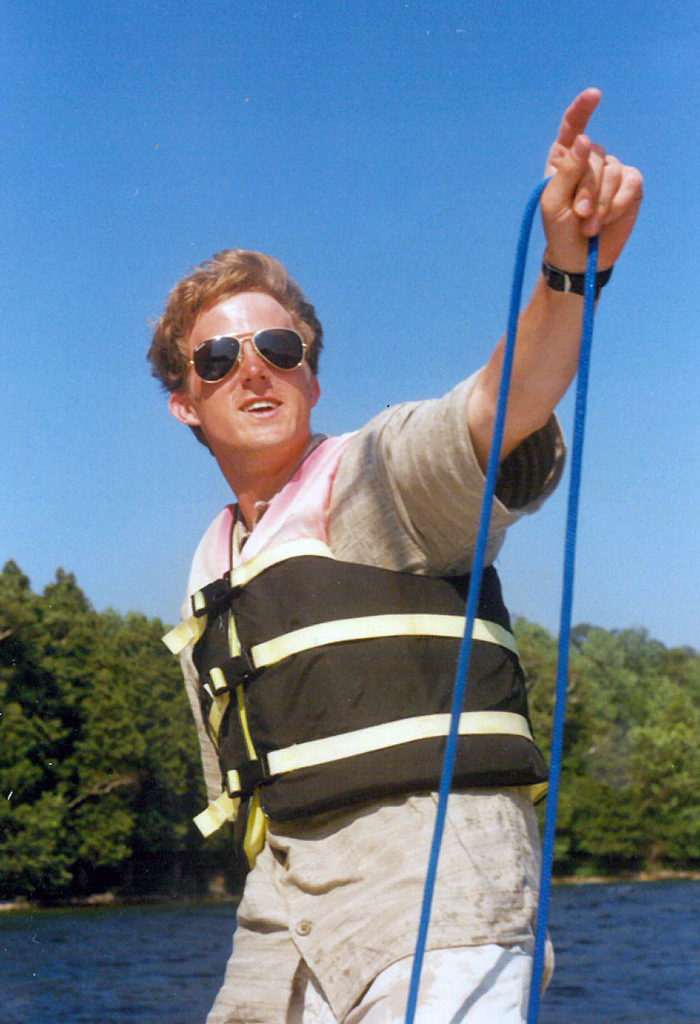
Tom Mackenzie believed Door County would be a good place to start an arts and entertainment publication. Submitted photo.
“I was a kid who would run around the theater, meet everybody, go backstage. I really got to know the people who came every summer,” McKenzie said. “It was captivating. I was an ingénue there for some time and played many, many roles. It was always a place that inspired me and had a kind of magic and intrigue, everyone working together on a common, imagined vision, sitting on a back bench with my uncle watching the opening night show, watching it from his perspective, to see this endeavor come together. I would volunteer to usher and you really start to talk to people, welcome them to the place, set the tone for the evening of joyous and spellbinding theater under the stars with bats flying around the house.”
Because of that, Door County was a second home to McKenzie.
“I knew it as a place where creative projects could happen and there were really interesting people to engage, and you had a really positive and supportive community for creative ventures. I learned all that, I think, through my time at Peninsula Players,” he said.
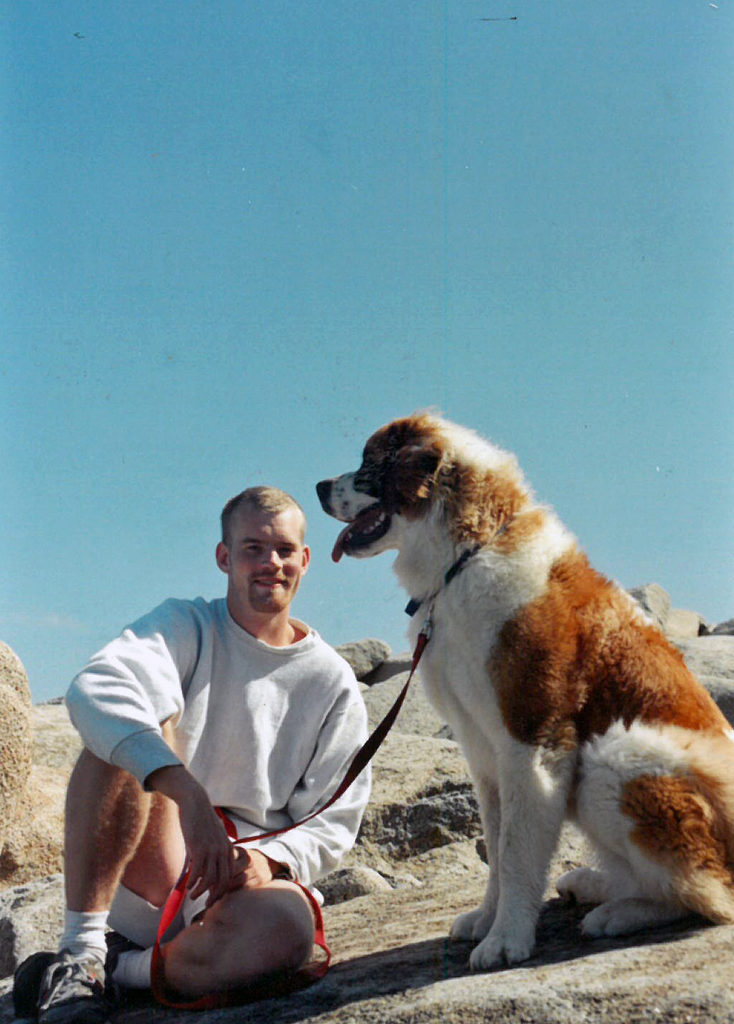
Dave with his St. Bernard Charley. Dave’s interest in digital technology resulted in the birth of the Peninsula Pulse. Submitted photo.
Back in high school in Massachusetts, Eliot was introduced to desktop publishing.
“My senior year in high school [1989], there was PageMaker,” he said, referring to one of the earliest desktop publishing programs. “My English teacher was talking about how we could sit in front of a computer and make a newspaper. Layout and design was just shifting from cut and paste to submitting something entirely digital. I was assistant editor and took over a computer and started making a newspaper.”
Eliot said it was the people involved that made producing the school newspaper interesting.
“I think what drew me to it was the people I worked with and the energy of making something out of nothing,” he said. “That was what made me interested in newspapers, getting the right creative heads together. That was my beginning.”
Finding Direction Through Liberal Arts
Discussing their college years at Lawrence University individually, both Eliot and McKenzie sound of like mind.
McKenzie said he didn’t have any specific thoughts for his future other than a vague notion that he would like to write.
“Lawrence gave me the confidence that I could be a writer, but I had no confidence in that skill coming out of high school,” he said, adding that he blames himself and not his K – 12 education.
“I did not pick up the fundamentals in K – 12,” McKenzie said. “When I managed to get into Lawrence after spending some time in community college, I worked really hard and realized I can write. This liberal arts education and the way it engages the thinking muscle, the philosophical muscle, the visioning muscle is really exciting.”
“I chose a liberal arts school like my dad had before me,” Eliot said, “because the education was supposed to present itself and through learning I was supposed to figure out the right path. I felt through education I was given all these opportunities, but high school wasn’t enough to tell me what to choose. College was supposed to give me enough variety to tell me that. But I goofed off a lot in my freshman year.”
Luckily, his adviser noticed that Eliot wasn’t achieving his potential, and his adviser just happened to be Lawrence President Richard “Rik” Warch.
“He called me into his office and said ‘You know, I had the same problem. I goofed off a lot, too.’”
Warch advised Eliot that he needed to engage himself in activities.
“So I thought, I worked with the newspaper before. Hey, what’s going on with the newspaper? It turned out the editor got kicked out and there was a sports writer and that was it.”
Eliot, a sophomore at the time, was offered the job of editor of the student newspaper, The Lawrentian.
“And then I went and looked at the office. They had computers worse than what we had used at my high school,” he said. “So I went to my adviser and asked if we could get better computers. He said, ‘I’ll put you in a room with someone who might be willing to donate the money.’”
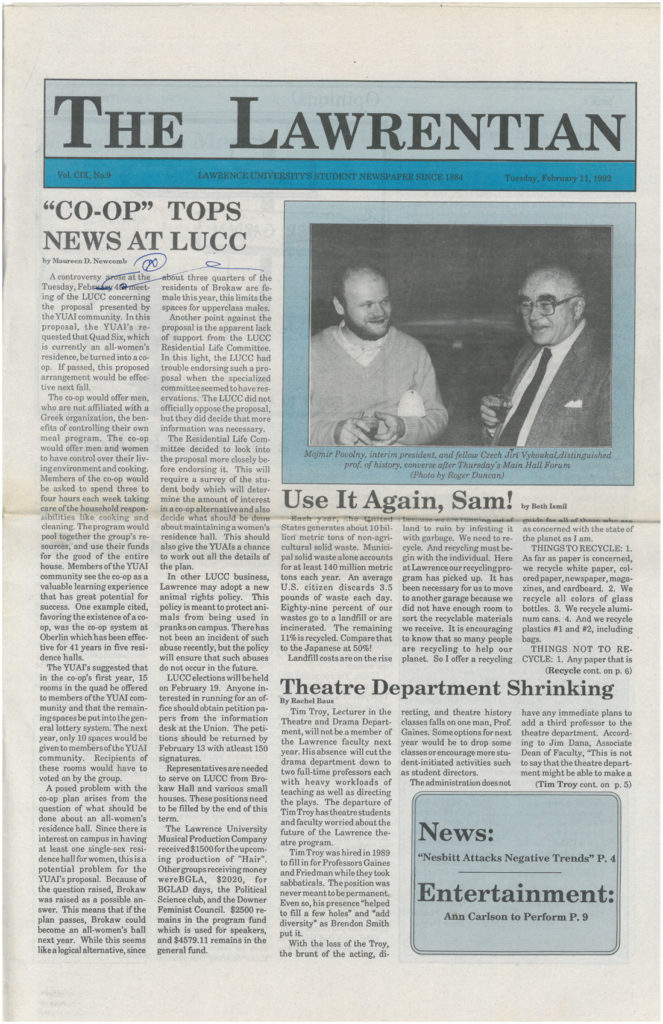
Dave Eliot helped both his high school newspaper, The Governor, and his college newspaper, The Lawrentian, enter the digital age.
Eliot put a proposal together requesting $5,000 for the equipment needed to put together a newspaper, and found himself in a room with Fox Valley architect/philanthropist Frank Shattuck.
“He wrote me a personal check for the amount of money that I asked for and I gave it to the school,” he said. “We got new computers and we made The Lawrentian into a digital newspaper.”
But Eliot learned an important life lesson in his encounter with Shattuck.
“I never wrote Frank a thank you note. Two weeks later — I’ve told this story to graduating seniors — I got a note from Frank. His response was, ‘Don’t bother writing a thank you note, it’s too late.’ Whenever someone gives you money or anything, the right response is a thank you.”
Eliot immediately faced another dilemma.
“I didn’t have a staff and I couldn’t write it myself,” he said.
So he went to all the campus groups and asked them to submit to the newspaper.
“Just give us information and we’ll print it,” he told them. “So I recruited that way. When we started, I had one sports editor and by the time I left, we had 60 different people contributing to the paper.”
Eliot also had an early experience in negotiations while serving as a college editor. A conservative group on campus approached the administration with demands for a budget to start their own newspaper because they didn’t like the views being espoused in The Lawrentian.
That’s when Eliot had to explain that under his direction, The Lawrentian was funded by its advertising rather than by the college.
Then he told the conservative group they could have their own column.
“Write something and participate. We don’t publish you because you don’t submit anything,” he said. “So we got a conservative column. And it worked.”
While Eliot was making the campus newspaper vital and bringing it into the new digital age, McKenzie was contributing to the campus lit/art publication, Tropos.
“I had worked a little with Dave at The Lawrentian. I submitted a couple stories when he was editor,” McKenzie said. “What Dave did that was really remarkable because it gets to a kind of Malcolm Gladwell place, the people who exhibit success are at the right place at the right time. Dave converted the campus paper from cut and paste to digital layout design, which in those days was brand new.
“Dave attracted a circle that enjoyed questioning and pushing things further,” McKenzie continued. “He’s a very visionary guy. He would always be really fun to philosophize with, whether it was something substantial or not. So we connected on those levels and really enjoyed talking and thinking different perspectives on things that were being presented in our academic curriculum.”
All of which set the stage for the next chapter in the two young men’s lives.
What’s Next?
The big reality check of graduation day was coming fast.
“When it came to this conversation of what do we do next, the first big idea that came to us was to purchase a hotel in India and run it. Take our skills we got in Door County and import it to another country,” McKenzie said. “We kind of came down from that idea to something a little more pragmatic.”
“It was a possibility,” Eliot said of the hotel idea. “We had lots of friends in India. We were also going to start a coffee shop. We had the location picked out and everything.”
Ultimately, they decided starting a newspaper in Door County would be the most fun.
“Let’s take these skills — writing, publishing and engaging in the creative arts and other knowledge of community we’ve built up, let’s start a newspaper. Go where we would go anyway, back to Door County,” McKenzie said.
“I said ‘Why not?’” Eliot said. “At that point the technology was moving at a fast rate to make newspapers. We thought, no one else is doing this. Having been in that community, everybody’s talking to a different audience, a 35 to 50-year-old audience, and even within that, no one’s talking about the rich art and music performed. At that time there was music everywhere.”
That was the summer of 1995. McKenzie was dispatched to Door County to find a place for the pair to live and Eliot went home to Ipswich, where his job was to come up with the necessary computer equipment.
“I taught sailing that summer and lived in a tent outside of Ephraim with a friend of mine. It was great. I was celebrating being done with college,” McKenzie said. “As summer went on, I did locate a place a month or so after Dave was going to be out, way out on the edge of Newport Park.”
“I went home and lived with my parents and worked at a restaurant and saved money and took a small loan from them to get a computer and a scanner and a SyQuest drive and moved to Door County in September of 1995 to start a paper,” Eliot said.
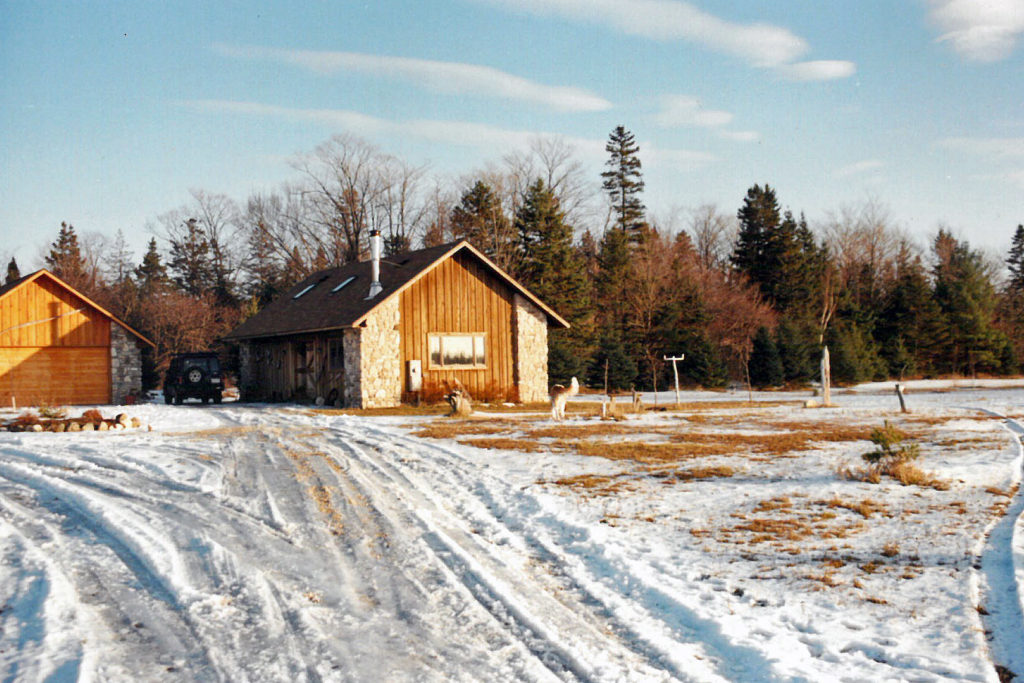
This is the home on Juice Mill Lane in Ellison Bay where Dave Eliot and Tom Mackenzie spent the winter of 1995 planning the beginning of the Peninsula Pulse. Submitted photo.
They both had jobs that winter, but when not working, they were planning for their newspaper.
“Where we lived was a quarter-mile from the nearest plowed road, so we would ski out. It was a really severe winter,” McKenzie said. “We lived in a converted structure that was more the way you build a garage than a house. Concrete slab with cedar and flooring installed over that. A woodburning stove was the primary heat. You could really get toasty. We lived with a St. Bernard. It was beautiful.”
The pair wanted to model their newspaper on edgy big city publications such as The Onion, Boston Phoenix, the Village Voice, and Chicago Reader.
“Dave had stacks of publications and we would look at the way they laid things out,” McKenzie said. “Through that first winter we really came up with the concept and layout and design, who we would get for initial contributors, getting some copy together.”
They were also coming up with the newspaper’s philosophy.
“We thought that Door County was known for the arts, for the theater and natural beauty, but underneath that was this service industry that worked their asses off by day and into the night,” Eliot said. “No one was telling what they were doing. And there was all this music happening in all these different bars. And all these cool artists that no one was talking about. Why don’t we tell people where to go to hang out and listen to good music and see great art? There was no one talking to anybody between the age of 20 and 30. They were talking to a different generation. This is an artistic, creative community and people weren’t being literary. They weren’t pushing the boundary of what’s happening. We had all these friends that were literarily inclined with no jobs, 21, 22 years old. I’d been getting people to write for free for years, so why not keep trying?”
Be sure to check out the fall issue of Door County Living for Part 2, where we tell the story of the launch and early years of the Peninsula Pulse.


